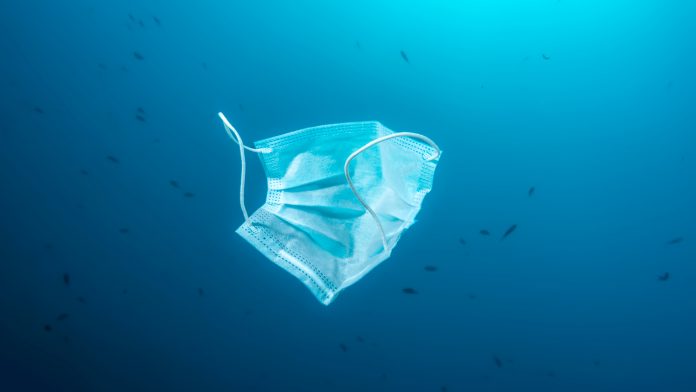According to the United Nations Conference on Trade and Development (UNCTAD) the Earth has been hit by a ‘tidal wave of COVID-19 waste’, including plastic face masks, gloves, hand sanitiser bottles and food packaging.
UNCTAD estimates that coronavirus lockdowns have led to a 5% drop in global greenhouse gas emissions, however, the use of personal protective equipment (PPE), which is largely made from single-use plastics, has increased considerably. Following a study conducted by Grand View Research, UNCTAD reports that global sales of disposable face masks alone are set to grow from an estimated $800m in 2019 to $166bn in 2020.
Pamela Coke-Hamilton, UNCTAD’s director of international trade, said: “Plastic pollution was already one of the greatest threats to our planet before the coronavirus outbreak. The sudden boom in the daily use of certain products to keep people safe and stop the disease is making things much worse.”
Hospital waste during COVID-19
The Chinese Ministry of Ecology and Environment estimates that hospitals in Wuhan produced more than 240 tonnes of waste daily at the height of the outbreak, compared with 40 tonnes during normal times.
According to a report published in American Journal of Infection Control, waste from disposable face masks is not only harmful to the environment but could also continue the spread of COVID-19. To resolve this issue, Chinese hospitals placed medical waste buckets with distinct markings in public areas of hospitals to collect the abandoned masks. They were then packaged in double-layer medical waste bags and disposed of as general medical waste by a specific member of staff.
The paper, led by Jie Peng of the Southwest Medical University, China, discusses how the COVID-19 medical waste should be properly disposed of, stating that ‘COVID-19 related medical waste is preferentially treated by high-temperature incineration. Although the gases disposed during the incineration process will cause air pollution, previous study shows that incineration is the most common and effective way to kill infectious pathogens, and it is applicable to various infectious medical waste’.







